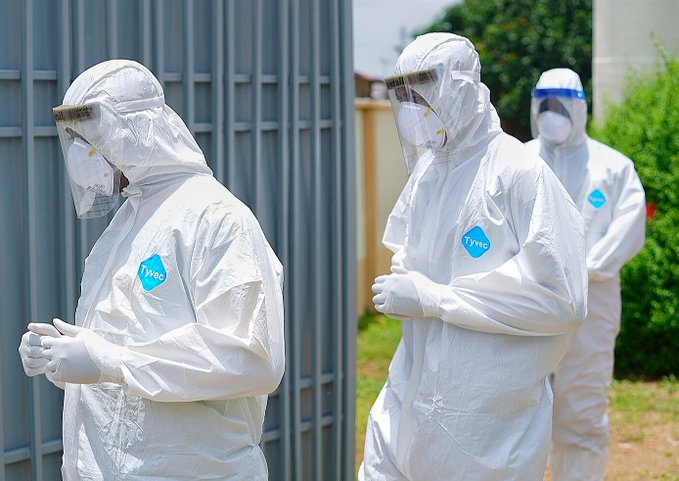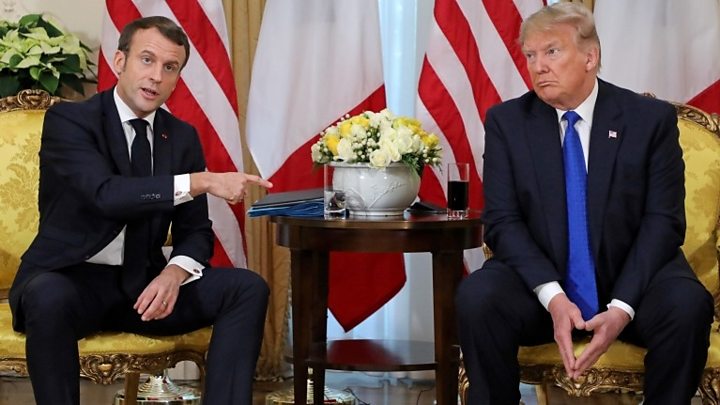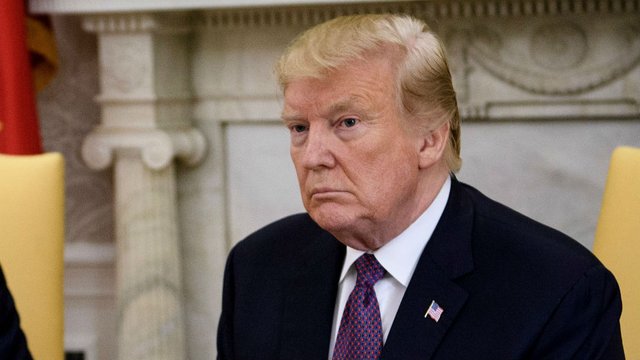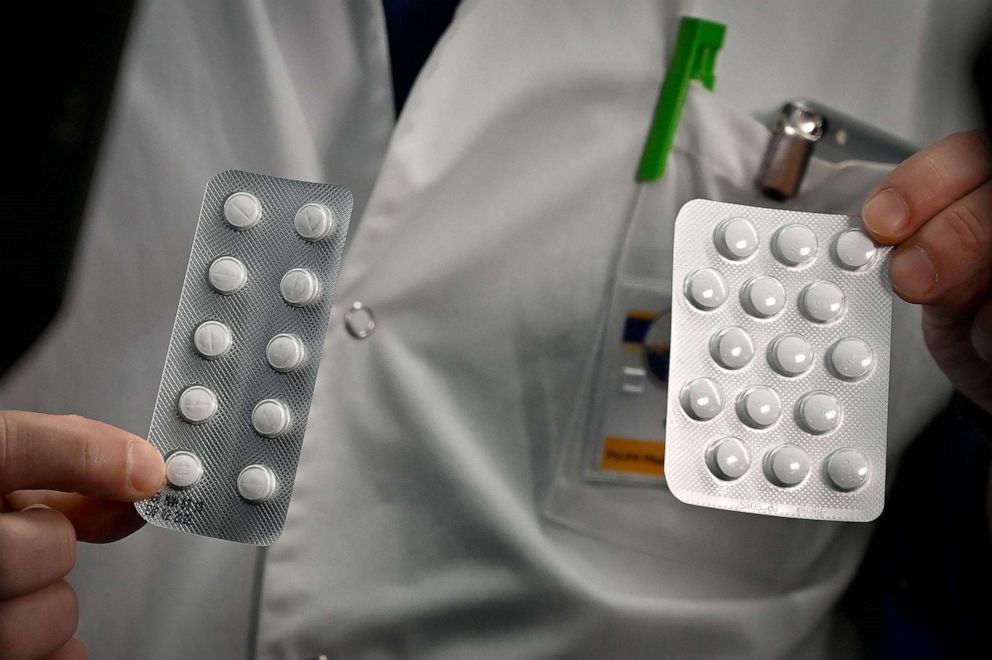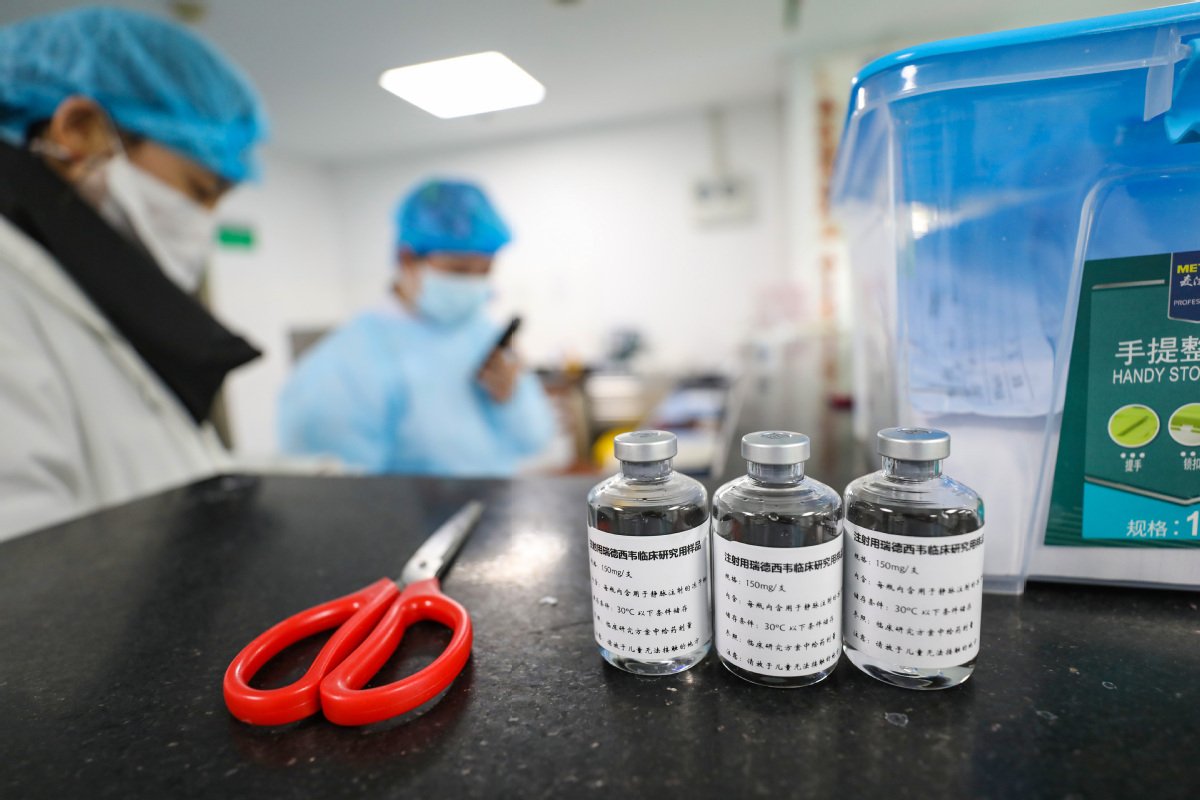U.S. President Donald Trump has described as “impressive” and “spectacular” Dr Stella Immanuel and her sensational video prescribing hydroxychloroquine as cure for COVID-19.
His comment came just as social media companies cracked down on the viral coronavirus disinformation that came out of the Doctors summit event, where Immanuel spoke in Washington D.C.
That didn’t perturb Trump, who praised Immanuel and her fellow Frontline Doctors at a Tuesday afternoon press conference.
“I can tell you this, she was on air along with many other doctors,” he said.
“They were big fans of hydroxychloroquine and I thought she was very impressive in the sense that from where she came, I don’t know which country she comes from, but she said that she’s had tremendous success with hundreds of different patients, and I thought her voice was an important voice, but I know nothing about her.”
“For some reason the internet wanted to take them down and took them off,” Trump said of the group. “I guess Twitter took them off and I think Facebook took them off. I don’t know why I think they’re very respected doctors.”
Trump then described Immanuel, as “spectacular” in her statements about hydroxychloroquine.
“I don’t know why they took her off, but they took her off, maybe they had a good reason, maybe they didn’t, I don’t know,” Trump said.
Facebook, Twitter, and YouTube removed the viral video of the event which had garnered millions of views after President Trump and others retweeted the clip.
SquareSpace also suspended the website for America’s Frontline Doctors, which put on the event.
The video featuring Immanuel, who also claimed that masks aren’t necessary for protection against COVID-19, was pulled from the platforms for sharing misinformation about the disease.
Twitter also briefly locked the Twitter account of the president’s son, Donald Trump Jr., when he tweeted the video and called it a “must watch!!!”
The viral video, which racked up more than 13 million views on Facebook, drew more attention to some of Immanuel’s more bizarre previous medical claims.
The Daily Beast reported Tuesday that Immanuel had claimed in the past that some gynecological ailments are caused by people having sex in a dream-world with demons, with the demonic semen as the origins of the afflictions.
Immanuel had also claimed that doctors used alien DNA in medical treatments, and that lizard-like “reptilian” aliens are involved in the United States government.
She thanked The Daily Beast on Tuesday for “summarizing” her work.
“The Daily Beast did a great job summarizing our deliverance ministry and exposing incubus and succubus. Thank you Daily Beast. If you need deliverance from these spirits. Contact us,” she tweeted.
But she has refused to provide proof of her claim that she’s cured hundreds of COVID-19 patients with hydroxychloroquine.
Earlier in the day at another White Coat Summit event, Immanuel slammed “professional hacks” in medicine who have criticized the use of hydroxychloroquine.
But she saved special vitriol for doctors who refuse to prescribe the drug because they’re supposedly afraid of professional consequences, calling them “good Germans” — a reference to Germans after World War II who claimed they had never supported the Nazis.
“You’re no different than a murderer,” Immanuel said. “You’re no different than Hitler.”

